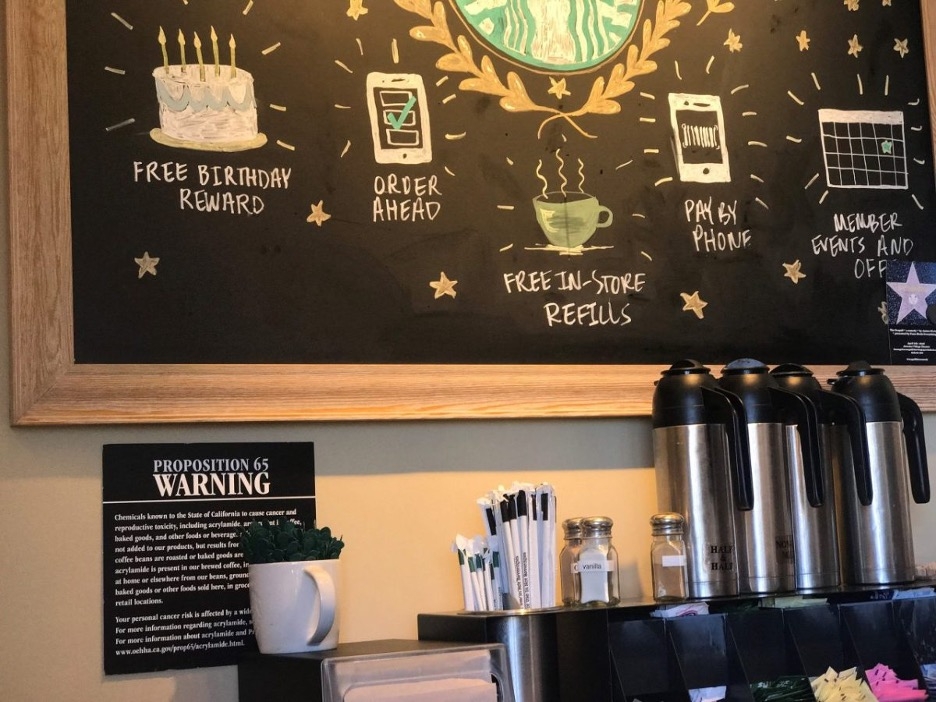Coffee and Prop 65
The long and winding road is over
Contributors

Eric P. Weiss
Most of us enjoy a cup of coffee (or two) in the morning. In fact, we rely on it for the caffeine boost it provides. Other than the potential harmful effects of caffeine, we do not think that coffee can cause a major illness such as cancer or heart disease. But, unbeknownst to us, there has been a long running debate between California regulators, courts, business, and consumer advocates regarding whether drinking coffee can cause cancer.
The debate revolves around California’s Proposition 65 which requires products to be accompanied with a warning if they contain certain, listed chemicals “known to the State of California” to cause cancer or reproductive harm. Specifically, roasted coffee beans, and coffee brewed from those beans, necessarily contain certain amounts of acrylamide, a chemical listed by the State as causing cancer. In several lawsuits, consumer advocates and the Attorney General have argued that Proposition 65 warnings are required to be posted wherever one purchases coffee. As the result of litigation in 2010, coffee shops felt inclined to provide Proposition 65 warnings in their stores as shown below. However, such warnings are no longer required as the result of the California Supreme Court’s recent denial of a petition to review a ruling in the Los Angeles County Superior Court in favor of coffee producers and sellers.

How did we get here: Prop 65 and acrylamide
Proposition 65 is a California chemical right-to-know law requiring manufacturers, retailers, and others to provide clear and reasonable warnings for significant exposures to any one of the almost 1000 chemicals on the list of chemicals maintained by California’s Office of Environmental Health Hazard Assessment (“OEHHA”), the agency responsible for investigating and listing chemicals. In 1990, acrylamide was added to the Prop 65 list as a chemical known to cause cancer. In 2011, acrylamide was listed as a chemical known to cause reproductive toxicity.
In addition to being found in other products (french fries, breakfast cereal, crackers, bread crusts, roasted asparagus, and even potato chips and nuts), acrylamide is produced during the coffee bean roasting process. Consequently, roasted coffee beans and the coffee made from these beans contain this Proposition 65 substance.
The safety of acrylamide has been tested in multiple ways. One method has been to dose laboratory animals with very high doses of acrylamide – magnitudes higher than people consume through coffee and cooked foods. These very high doses of acrylamide have been observed to cause cancer in some animal studies. In contrast, dozens of epidemiology studies in hundreds of thousands of people have not shown any association between coffee consumption and cancer; these epidemiology studies indicate that high-dose findings in animal laboratory studies are not relevant to people. In addition, in June 2016, the renowned International Agency for Research on Cancer (“IARC”) downgraded their original 1991 classification of coffee from Group 2B (‘possibly carcinogenic to humans’) to Group 3: ‘Not classifiable as to carcinogenicity’. This means that after reviewing over 1,000 studies, IARC determined that the extensive scientific literature does not show evidence of an association between coffee consumption and cancer. Ironically, not only did IARC find no clear association between coffee intake and cancer at any body site, it also found that in some cases, there is evidence that coffee drinking may actually help reduce occurrence of certain cancers; specifically, cancers of the liver and uterine endometrium.
CERT v. Starbucks
The issue of whether Proposition 65 warnings should be required for coffee products has been in litigation in a California court for the past 12 years. In 2010, The Council for Education and Research on Toxins (“CERT”) filed a lawsuit in the Los Angeles County Superior Court against dozens of defendants that sell, roast, and distribute coffee. In the suit, CERT alleged that acrylamide was present in coffee distributed and sold in the state and posed a significant cancer risk to consumers. Therefore, these products required a Proposition 65 warning. Rather than rely on the findings of epidemiology studies which, as noted above, found no risk of cancer, the claim was based on an assessment of animal studies.
In 2014, Judge Elihu Berle of the Los Angeles Superior Court ruled coffee companies failed to prove that acrylamide in coffee posed “no significant risk” to consumers, and required coffee roasters and retailers to provide Prop 65 warnings on coffee sold in California. This ruling was maintained in March 2018 after a second phase of the trial. As a result, coffee shops agreed to display the kind of warning depicted in the above photo, and pay millions of dollars in settlement. The case proceeded on other issues.
In June of 2019, likely as a result of pressure from the coffee industry, OEHHA evaluated all the science as a whole (including the epidemiology studies) and determined that companies would be exempt from including cancer warnings on coffee based on existing epidemiology evidence. The new regulation (27 C.C.R. § 27504) regulation states: “Exposures to chemicals in coffee, listed on or before March 15, 2019 as known to the state to cause cancer, that are created by and inherent in the processes of roasting coffee beans or brewing coffee do not pose a significant risk of cancer.” As a result of this revised regulation, the Prop 65 warnings were taken down by coffee shops.
On August 25, 2020, Judge Elihu M. Berle granted summary judgment for the defendants, ruling that the defendant coffee purveyors had successfully relied on the OEHHA’s regulation to show that acrylamide found in coffee does not cause cancer.
In November 2020, CERT filed a notice of appeal. On October 26, 2022, the Court of Appeal filed its opinion, concluding that the regulation was validly adopted and that claims regarding coffee additives are beyond the scope of the plaintiff’s actions.
CERT filed a petition for review with the California Supreme Court, and that petition was denied on February 15, 2023. Thus, manufacturers and other sellers can rest assured that no cancer warnings are required for coffee.
The litigation, commenced in 2010, is finally over: Proposition 65 does not require a warning for coffee.
New regulations for acrylamide
As a result of the OEHHA’s 2019 regulation and the Supreme Court’s denial of CERT’s petition for review, the fight over Proposition 65 and coffee is over, for now. But acrylamide remains a listed chemical. A new regulation (27 C.C.R. § 25506) went into effect on April 1, 2023. Although “coffee” is not mentioned in the new regulation, section 25506(a) reiterates that a “person otherwise responsible for an exposure to acrylamide in a food does not ‘expose’ an individual . . . to the extent the chemical was created by cooking or other heat processing…” This protects the coffee industry. But, the new regulation provides guidelines for determining whether other foods (notably bread, crackers, cookies, almonds, potato products, and waffles) must be accompanied by a warning.
